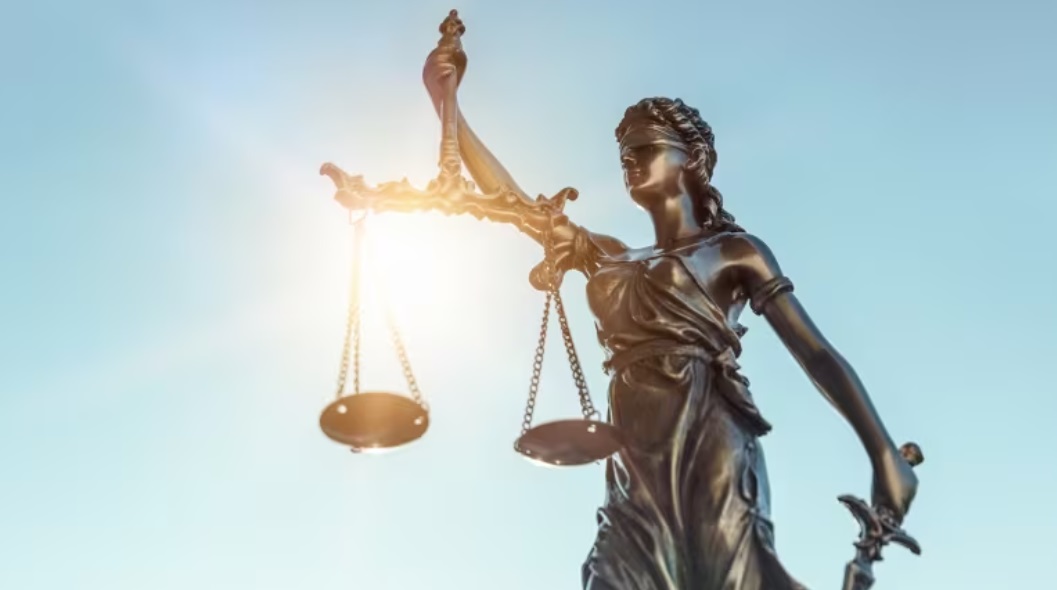

Our justice system was designed to have lawyers represent both sides in a dispute. But most Canadians can't afford a lawyer — so where does that leave the idea of justice itself? (Shutterstock / Proxima Studio)
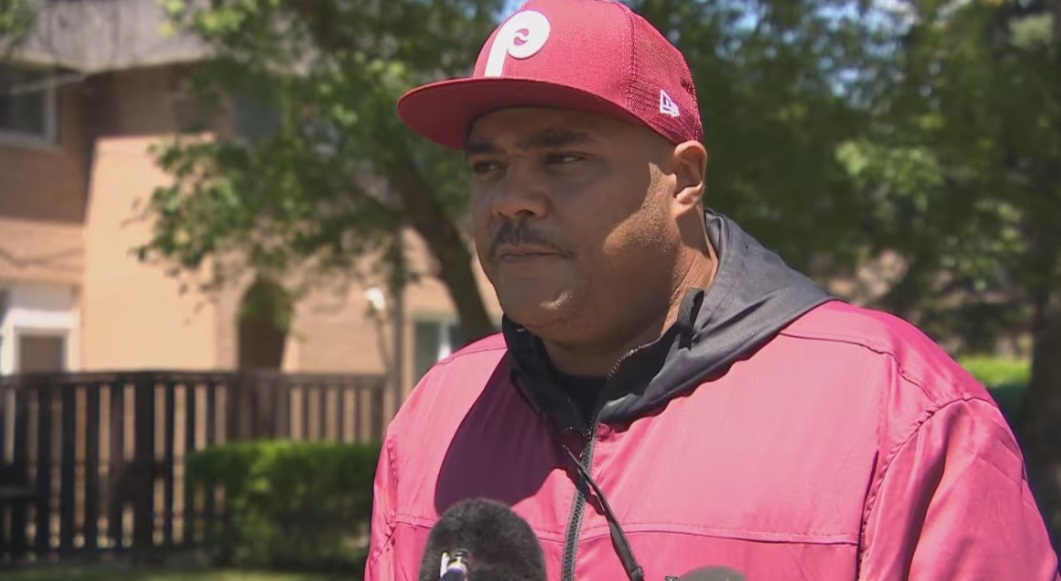
Marcell Wilson is no stranger to violence. He's been charged upwards of 30 times for what he describes as "mostly violent crimes."
"The courts, the police, and the intelligence agencies know me very well," he told IDEAS.
But Wilson has never been convicted of any charges because he claims to know how to game the criminal justice system.
When he was 13 years old, Wilson was living on the street. He grew up in a public housing project in Toronto called Swansea Mews in the 1980s — and when he left home, he turned to crime to make ends meet.
He and his friends would break into cars and houses, and, eventually, got into the drug trade. Paradoxically, with drug dealing came stability. Finally, he says, he could provide for himself.
As a kid, Wilson was a strong student with "a deep belief in God."
But he was also tall and, as he puts it, "good with his hands." As word got out that he had a talent for fighting, he started getting noticed by increasingly powerful criminal figures. Before long, he says, he was a "strong arm for larger [criminal] organizations," travelling back and forth to Central America.
In his criminal subculture, he says there was one golden rule: if someone asked you to do something, you got it done. And Wilson always got it done.
"I didn't ever want to be a victim" he said, and "the only way to not become a victim is to become an animal."
Marcell Wilson was first introduced to criminal activities at age 13, then he got involved in gangs and organized crime. He now is the co-founder of the One by One Movement, a think tank that aims to 'decrease extreme acts of violence worldwide.' (CBC)
Wilson was 13 when he was arrested for the first time. After going for a joyride in a stolen car, he was charged with grand theft auto.
Unlike his peers, Wilson says he had a connection to a lawyer who was willing to take the modest fees provided through legal aid. That connection proved pivotal, as the same lawyer would represent Wilson for the entirety of his years in organized crime.
And once Wilson's drug dealing enterprise took off, he would use the proceeds to pay his legal fees. Fees that were typically between $30,000 and $50,000 for a defence against any one single charge. To this day, Wilson doesn't have a criminal record.
Although he was able to make the legal system work for him, Wilson doesn't harbour any illusions that his experience was a just one.
"How fair can something be where you can sidestep accountability by buying your way out?" he asked. "Punishment has never been a deterrent, because you can simply buy your way out."
Many scholars and legal commentators have noted what you've likely suspected yourself: that it's easier for people with wealth to secure favourable legal outcomes. This is true not just in criminal court, but in custody disputes, civil litigation, and child protection matters.
But what's unusual in Wilson's story is that he, a Black man from a marginalized neighbourhood, was able to avoid incarceration despite dozens of run-ins with the law.
"That's not the case for most Black criminally accused people," said Danardo Jones, an assistant professor of law at the University of Windsor.
Jones, who's also a criminal defence lawyer, says that our criminal justice system doesn't try to "obscure the fact that it targets particular people." As someone who's spent years representing marginalized people, Jones has seen these disparities firsthand, but it's borne out in the data, too.
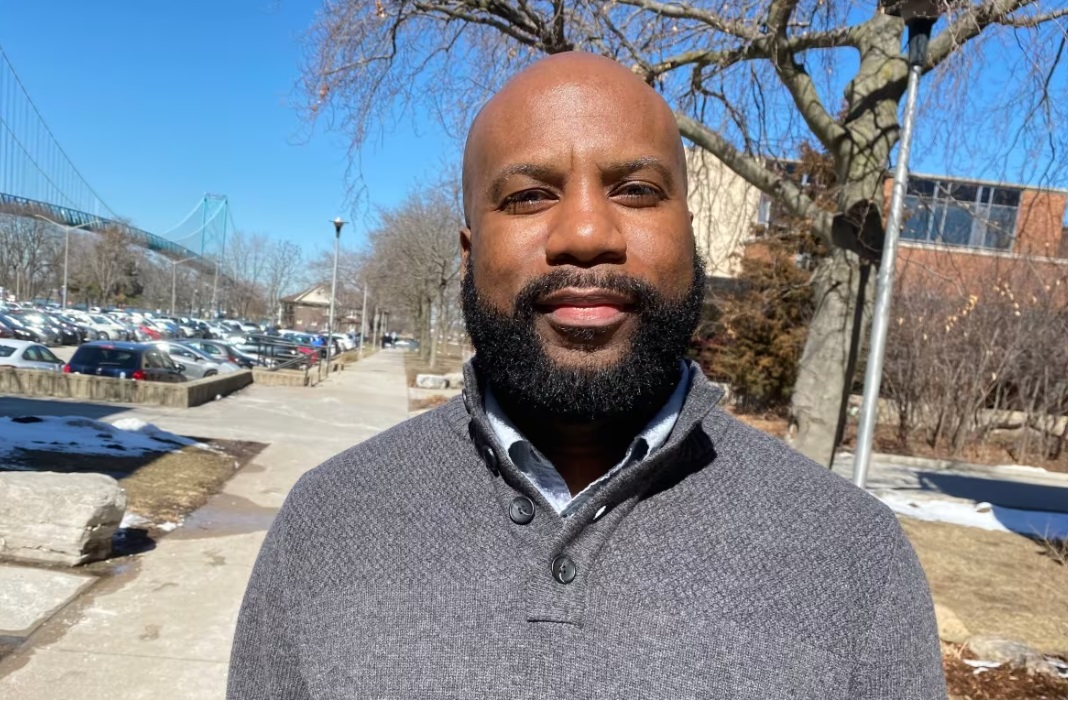
A recent study published in the Race and Justice journal found that Black men are five times more likely to be incarcerated than white men. And Indigenous women, according to the Department of Justice of Canada, are 12 times more likely to be incarcerated than their non-Indigenous counterparts.
Jones says that these kinds of systemic biases manifest themselves in nearly every facet of the criminal justice system. He argues that police resources are deployed disproportionately to low-income, marginalized neighbourhoods, where certain groups, like Black men, are more likely to be investigated for criminal activity.
And when someone does get picked up by police, Jones says "the same stereotypes that would have led the police to investigate, arrest and charge this person" also drive decisions about "who gets prosecuted and who does not get prosecuted."
Having access to courts does not necessarily lead to accessing justice.
- Danardo Jones, criminal defence lawyer
Eventually, people end up in court, the place where, at least in theory, justice is supposed to be meted out.
But Jones says "that's not what happens." Instead, he points out that it's not uncommon for his clients to plead guilty to things they didn't do. In those situations, Jones says he's obliged to recuse himself and let his clients enter their guilty plea alone. He's not permitted, legally or ethically, to "wrongfully convict someone."
Much of the conversation about the justice system revolves around improving access to lawyers and courts. But while Jones acknowledges that access is part of the problem, he insists that "having access to courts does not necessarily lead to accessing justice." He argues the fact that he's had clients who would rather wrongfully convict themselves than stand trial is proof of that claim.
When Wilson left the world of organized crime, he set up an organization called One by One, which aims to steer people away from lives of violence and criminality. One by One identifies at-risk youth in Toronto, and provides them with mentorship, resources and other forms of support to give them a viable alternative to a life of crime.
Wilson's seen firsthand that these types of interventions can turn someone's life around. "It's working for us," he said, but "we'd love to do [it] on a much larger scale."
His experience is supported by recent criminological and sociological research as well. For instance, a study published in the American Sociological Review looked at over 250 large American cities, and found that "every 10 additional community non-profits in a city with 100,000 residents leads to a 12 per cent reduction in the homicide rate, a 10 percent reduction in violent crime, and a 7 per cent reduction in the property crime rate."
And in their book, No More Police: A Case for Abolition, Andrea Ritchie and Mariame Kaba argue that there's evidence showing that the best way to reduce violence is to increase access to housing, education, living-wage jobs and community programming.
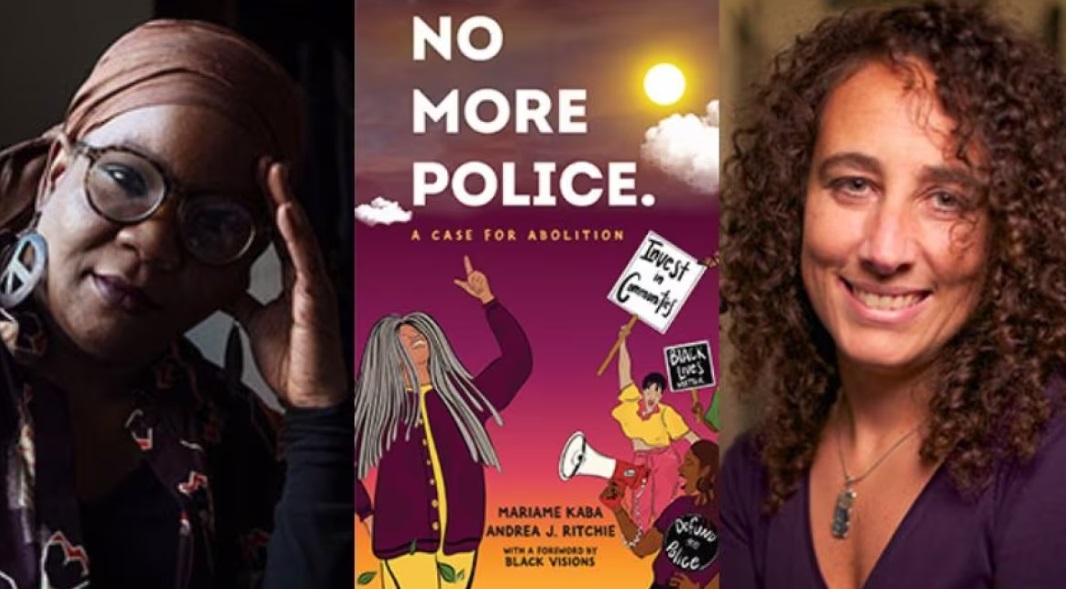
But if that's the case, why do we continue to pour money into surveilling, policing, and incarcerating people?
"It would almost make you think they want it this way," Wilson said. "Why do we keep doing things we know don't work? We know how to fix this problem. Why aren't we doing it?"
Joshua Sealy-Harrington, an assistant professor at the Lincoln Alexander School of Law at Toronto Metropolitan University, agrees. Sealy-Harrington says that when criminality arises, the state has two possible responses: "You could address the root causes, or you could put that person in prison. And prison is not necessarily even the cheaper option, it's the option that allows you to maintain certain forms of racial inequity without ever addressing those root causes."
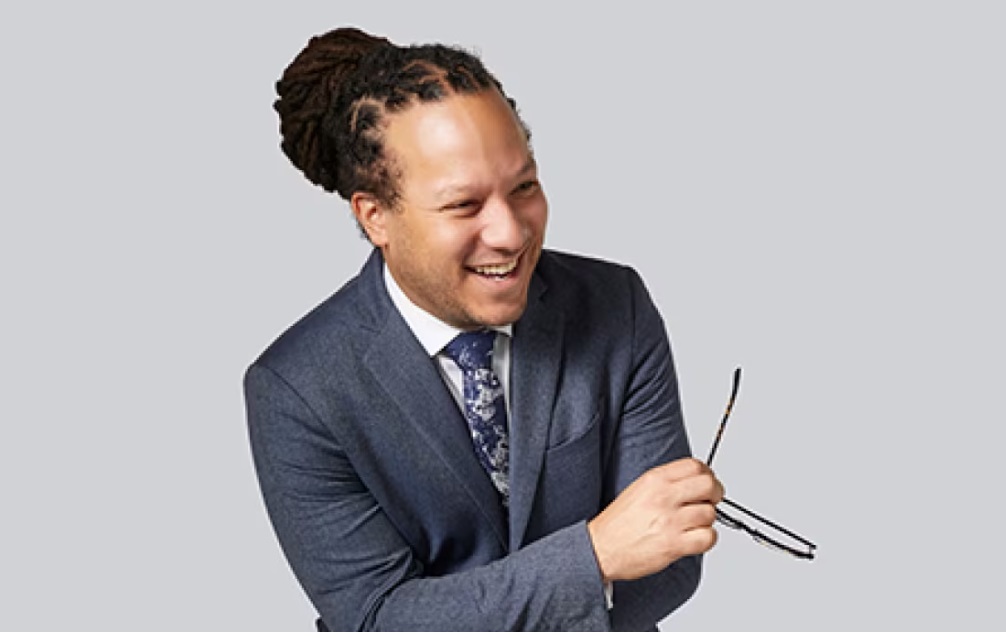
According to a 2018 report from the federal Parliamentary Budget Officer, it costs approximately $115,000 a year to keep someone in prison. In a press conference last year, a representative from the Correctional Service of Canada put that figure at nearly $190,000. Sealy-Harrington thinks that if you invested that money in communities, "you'd probably see dramatically improved outcomes."
What's more, it's not entirely clear that the carceral system is even working.
"Prison is not about deterrence" bristled Jones, "Deterrence is an objective of punishment, but it's not an objective that we've been able to meet. And I think there's ample evidence out there to suggest that locking people up in cages has not actually made us any safer. It's not actually stopped anybody from engaging in criminal conduct."
But if the policy of locking people up is both uneconomical and ineffectual, why do we continue to invest so many resources into the present system? Sealy-Harrington argues that the system's "ostensible contradictions… are actually the intentions of the system itself… because that type of policy is meant to serve a very particular set of interests."
In the criminal system we don't try to achieve justice, we try to achieve finality.
- Danardo Jones, criminal defence lawyer
According to Sealy-Harrington, "there is an elite group of people who definitely win when you implement policies like that…because when you disappear the casualties of fiscal austerity from society, you then justify fiscal austerity in a way that advances certain elite interests."
While that may seem like a radical assertion, it appears to be supported by the evidence. Prison does not deter criminality in a meaningful way, and investing in communities would likely be a more effective, and more affordable, way of creating safety.
All of which causes people like Jones to question what our criminal justice system is actually meant to do.
"In the criminal system we don't try to achieve justice, we try to achieve
finality. Our justice system is not just… at all," he lamented. "Some people go
as far as to just call it a criminal system. They don't even use the word
justice."
*The two-part series, Injustice for All was produced by Mitchell Stuart,
with help from Greg Kelly.
For more stories about the experiences of Black Canadians — from anti-Black racism to success stories within the Black community — check out Being Black in Canada, a CBC project Black Canadians can be proud of. You can read more stories here.
Source
https://www.cbc.ca/radio/ideas/canadian-court-system-lawyers-fairness-justice-1.6836073
Commentary by the Ottawa Mens Centre
In law, the first thing a lawyer has to do is "spot the issue". Here is a classic example of a journalist using preconceived ideas that engage in denial of the issue.
The primary issue in Criminal law is that a fair trial requires a lawyer and without a lawyer
a wrongful conviction is a certainty.
Every other country has the legal presumption that a lawyer should be appointed for anyone without who cannot afford a lawyer.
Judges in Canada routinely deny applications for a lawyer to deliberately increase the chances of a wrongful conviction.
Its akin to the worst group of people in society conforming with each other to take part in the stomping to death of a homeless drunk.
Canadian judges are selected for their political donations and their criminal propensity to obstruct justice , fabricate evidence and make political decisions rather than legal decisions.
In Ottawa there the list of judges reads like a list of the worst of the worst of society who got to be judges for all the wrong reasons.
Even ethical reasonable judges who join the judiciary learn that they have been thrown into a toxic judicial chambers and are forced to protect each other's criminal acts of obstruction of justice, fabrication of evidence all done under the illegal legal principle called "the legal process of justification"
The worst of the worst is an expression used by Ottawa lawyers to describe the likes of
Justice Alan Sheffield, Minnima, a former lawyer for the Childrens Aid Society,
Jennifer Belishin, a former lawyer for the Ottawa Children's Aid Society
then there's Tracy Engelking, another former lawyer for the Ottawa Children's Aid Society with a record of fabricating evidence and obstruction of justice.
Engleking is what you call a sub-human being, a professional child abuser who brazenly makes false statements to judges to mislead and obstruct justice, before she became a judge.
Its worth understanding how she became a judge.
Another sub human psychopath lawyer for the Children's Aid Society was Margarette Isobel Lewis who left a trail of children placed into care of the CAS using standard skills of fabricating evidence and misleading the court.
Margarette Isobel Lews was so notorious that if she was in the courtroom you could walk past several groups of lawyers all talking about her.
Margarette Isobel Lewis was about to be appointed a Superior Court Judge when the selection committee got wind that she would be an embarrassment and was ruled out.
That's when the CAS pulled out their second in command, to Margarette Isobel Lewis the equally infamous Tracy Engelking.
Now, Tracy Engelking is now one of the most notorious judges in Ottawa where the CAS uses her and her criminal associates as a rubber stamp regardless of the evidence.
Whats disturbing about Engelking and Lewis is that they used and use the Ottawa Police to lay fabricated charges against those they don't like.
Those charges use CAS workers to fabricate evidence to put their critics in jail.
They use the lowest forms of life in the Crown Attorneys office like the political prosecutor
Jason Neubauer who prosecuted CTV Michael Duffy and the truck convoy female leader.
That's just one reason why you cannot have a fair trial without a lawyer in Ottawa where the worst criminals in society are not in jail but in Ottawa's Judges Chambers.
Again, here is the link to the CBC article which triggered the above commentary.
https://www.cbc.ca/radio/ideas/canadian-court-system-lawyers-fairness-justice-1.6836073
Ottawa Mens Centre